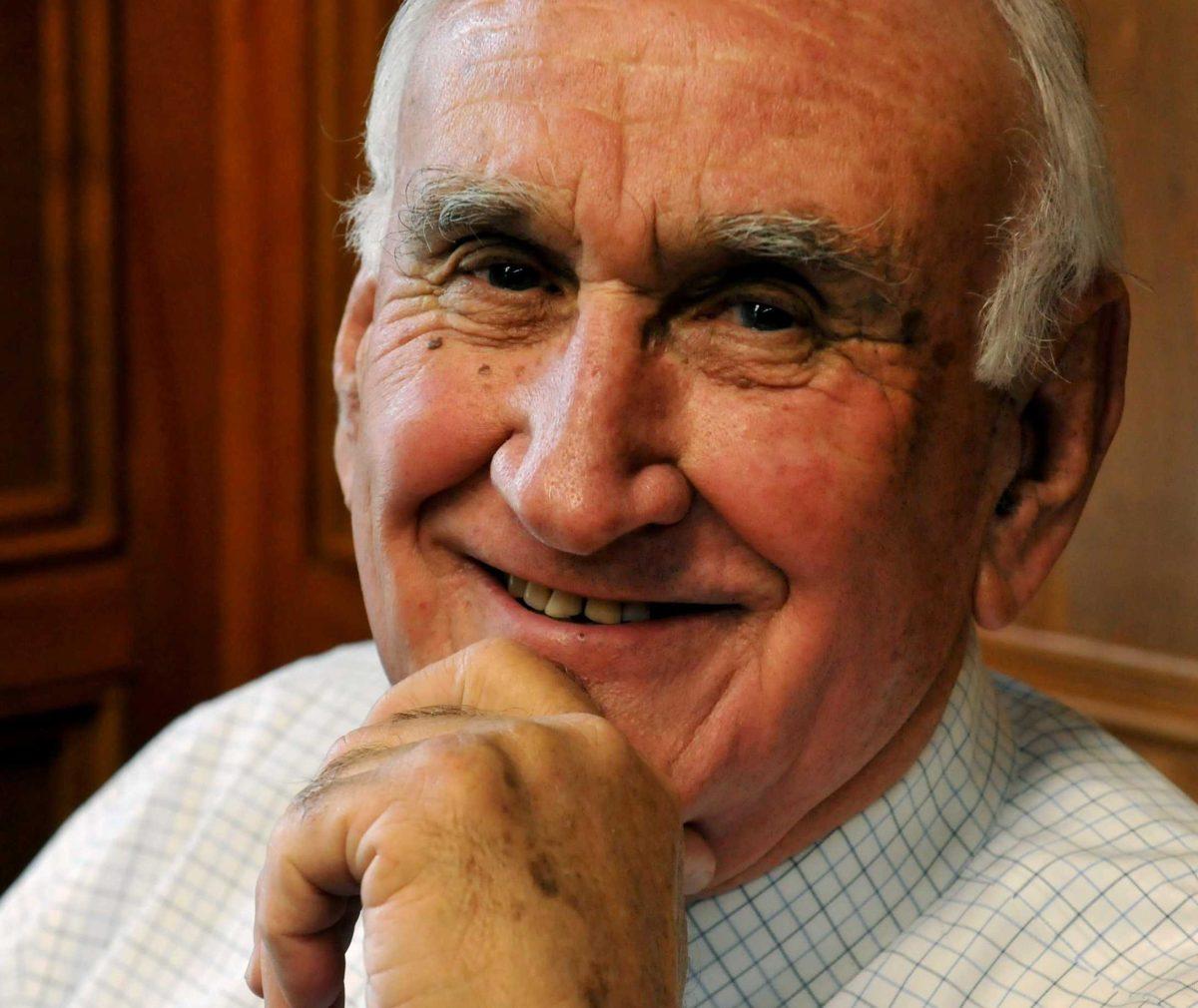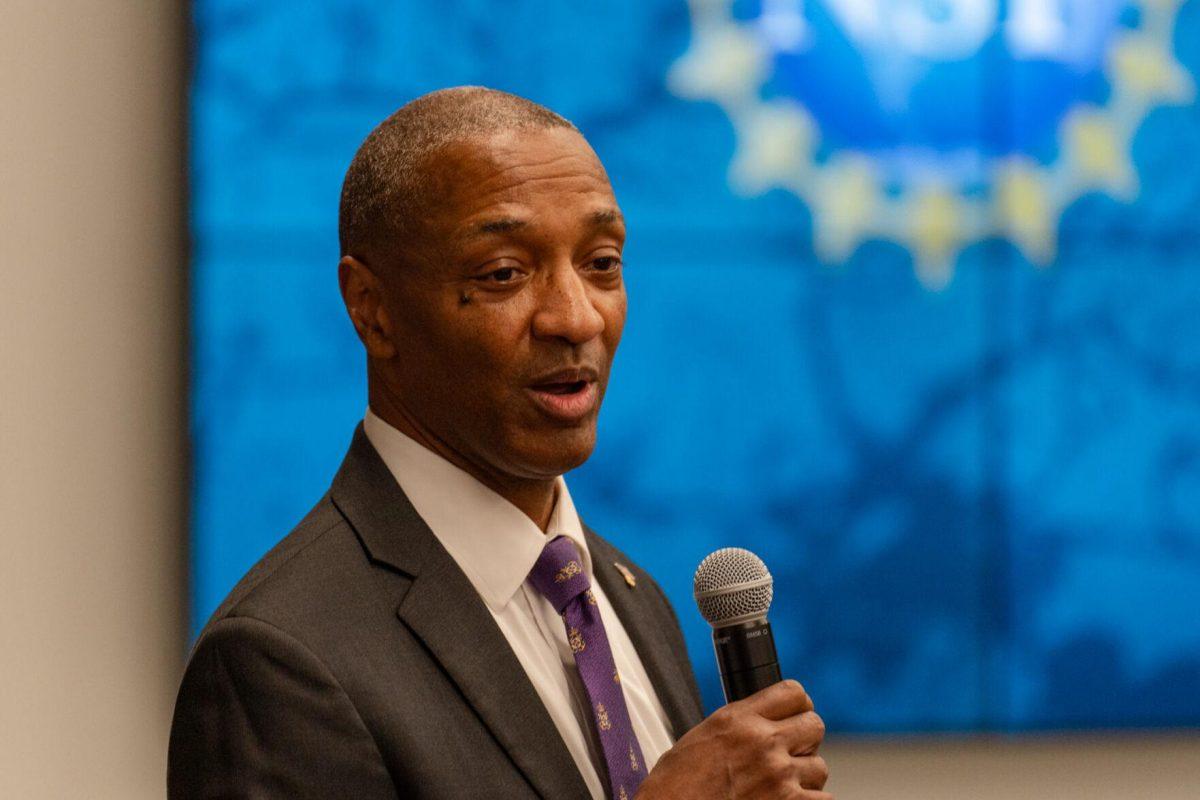From a farm in South Africa to the Louisiana swamps, Interim System President and Chancellor William “Bill” Jenkins has done it all when it comes to higher education, and most of it fell into his lap without his asking for it.
The 75-year-old has served as the University’s chancellor twice, system president once and dean of the LSU School of Veterinary Medicine — and he’s never applied for an administrative job.
Born on a farm in South Africa, he never intended to work in higher education.
He spent his childhood playing rugby and cricket, while aspiring to become a veterinarian.
“I always wanted to do it and fulfilled that dream,” he said.
He thought the highest level he would ever reach was being a veterinary school dean.
But Jenkins moved through the ranks of higher education. He came to the United States and received a Ph.D. in veterinary medicine from the University of Missouri in Columbia in 1970. He returned to South Africa and practiced veterinary medicine for four years before joining the faculty of the University of Pretoria in South Africa.
In 1978, Jenkins moved back to the United States amid violent turmoil in South Africa.
He spent 10 years working in the Department of Veterinary Physiology and Pharmacology at Texas A&M, and was appointed dean of the LSU School of Veterinary Medicine in 1988. By 1993, he became the executive vice chancellor and provost, and in 1996, he was named chancellor for the first time.
“I thought being a dean would be the culmination of my career,” he said.
As an administrator, Jenkins won awards, served on select national committees and even met six presidents — Gerald Ford, Ronald Reagan, George H.W. Bush, George W. Bush, Jimmy Carter and Bill Clinton.
Jenkins’ ability to relate to all people regardless of status led him to many positions, said Peggy, his wife of 51 years.
“He’s honest, and he’s got integrity,” she said. “And he’s a people person. He’s always there to spend time with the little people.”
His achievements also come from his ability to assess multiple angles of problems from different perspectives, said Laura Lindsay, dean of the College of Human Sciences and Education. Lindsay has worked with Jenkins since he started working at the University.
“He tries to bring people together who have a stake in issues and asks them to present their case,” she said.
Jenkins retired in 2007 to Colleyville, Texas, but retook the reins in May despite his family’s wishes, when the Board of Supervisors ousted former System President John Lombardi and asked Jenkins to fill in as interim system president. And when former Chancellor Michael Martin relinquished his duties in June to become the system president of the Colorado State University System, Jenkins was named interim chancellor as well.
“It was not an easy decision,” Jenkins said. “But I felt I had enough vigor to help in the transition.”
His vigor to be back comes from his love for the University, his wife said.
“There’s an ambiance, a positive attitude. Students believe in themselves, and I find it inspirational,” Jenkins said.
Holding two positions is trying, Jenkins said, but he enjoys both.
On an average day, Jenkins wakes at 5 a.m., walks around the University Lakes and is usually in his office by 7 a.m. He works through the day and gets to bed around 10 p.m.
Jenkins, a Roman Catholic, also tries to attend weekday Masses as often as he can at Christ the King Parish and Catholic Student Center on the University’s campus where he also attends Sunday Mass.
“Being chancellor, I can serve the campus, and I enjoy being on campus and dealing with students, faculty and staff,” he said.
As interim system president, Jenkins enjoys the “challenges” of dealing with the LSU System’s numerous institutions and with the legislature.
While the job can become demanding, Jenkins still likes to walk around campus and talk to students.
He took time out of a Board of Supervisors retreat at Pennington Biomedical Research Center on Saturday to go back to campus and greet freshmen.
Lindsay said Jenkins’ efforts to meet with students and faculty are among his greatest attributes.
“He’s also a good listener and has quite the memory,” she said.
During his five years away from the University, Jenkins spent his time with his wife, three of his four children and his nine grandchildren in Texas.
“I believe grandparents these days have a significant role in raising children,” he explained.
His wife said he also serves as a role model for their grandchildren.
“He’s always available for counsel,” she said. “To sit and talk.”
Jenkins also worked on two books during his time off. One is an autobiography and the other details his administrative experiences working with others to help evacuees after Hurricane Katrina.
“It’s more personal and more about individuals who became heroes but weren’t recognized,” he said. “I have to correct that.”
While he misses his wife and family in Texas, Jenkins said he’s fully committed to the University as long as he is needed.
“My strength and conviction come from a deep belief in the goodness of others, and I’ll use those beliefs as I serve this state.”
This is the first in a two-part profile of the University’s newest leaders.





